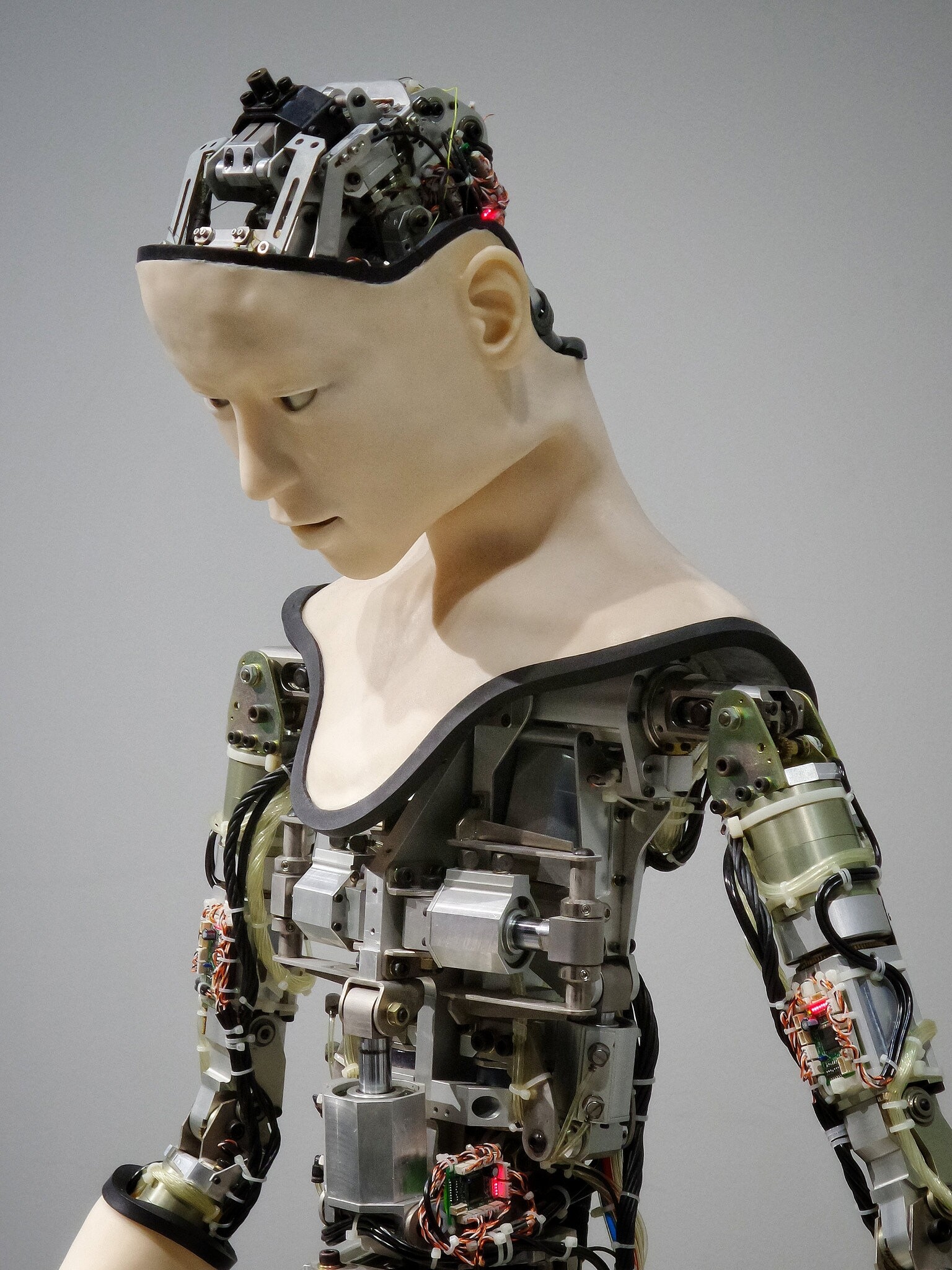AI’s Bar Exam Triumph Raises Concerns for Attorneys
The recent feat of AI technology, ChatGPT-4, passing the bar exam, has sent ripples throughout the legal community. This article explores the implications of AI's triumph, delving into its potential impact on the legal profession, job prospects, and competition. It underscores the urgency for attorneys to adapt to these technological advancements, while providing a comprehensive, unbiased analysis of current advancements and concerns in the field.

Key Takeaways
- AI's passing of the bar exam, as demonstrated by ChatGPT-4, has raised concerns among attorneys.
- The understanding of complex legal concepts by AI has sparked questions about its role in the legal profession.
- AI's success in passing the bar exam may impact job prospects and increase competition for attorneys.
- Attorneys need to adapt and stay abreast of technological advancements in order to remain relevant in the face of AI's progress.
The Advent of AI in the Legal Sector
The advent of AI in the legal sector, particularly the recent triumph of ChatGPT-4 in the bar exam, brings forth an intricate discourse on the potential automation of tasks, the disruption of legal practice, and the essential need for attorneys to adapt swiftly to these technological advancements. The AI's impact on legal research is pivotal, capable of analyzing vast volumes of data at unprecedented speeds, thereby potentially improving efficiency and accuracy. Meanwhile, AI's role in contract drafting presents a dual-edged sword. On the one hand, automation could expedite the contract drafting process, reducing human error. On the other hand, it could potentially undermine the nuanced understanding and interpretive skills possessed by human attorneys, raising concerns about the quality and integrity of AI-prepared legal documents.
ChatGPT-4: The AI That Passed the Bar Exam
In a remarkable turn of events, ChatGPT-4, an advanced AI model, became the first of its kind to pass the bar exam, inciting a wave of discussions among legal professionals about the future implications for their field. This ground-breaking achievement has brought under scrutiny AI's impact on legal education and its potential role in legal research and analysis. AI's proficiency in understanding and applying complex legal concepts reveals a shift in the legal landscape. The conversation is now centered around how lawyers and law students can leverage this technology to enhance their practice and learning respectively. However, it also raises concerns about job prospects for attorneys, and the ethical considerations of AI's role in legal matters, underscoring the need for a balanced discourse on AI's integration in the legal field.
The Implications of AI’s Success on the Legal Practice
While AI's triumphant success in the bar exam undeniably marks a milestone in legal technology, it simultaneously stirs concerns among practicing attorneys about potential disruptions to their profession. The rise of AI, particularly the recent accomplishment of ChatGPT-4, could profoundly impact legal research, automating tasks and enhancing efficiency. However, this also implies potentially reduced demand for human attorneys. More importantly, AI's implications for legal ethics are complex and multifaceted. While AI can process and interpret vast amounts of legal data, questions about accountability, bias, and decision transparency remain. As we navigate this technological advancement, it's crucial to balance the benefits of AI with ethical considerations, ensuring that the legal profession continues to uphold its commitment to justice.
Analyzing the Potential of AI in Legal Tasks
Both the significant capacity of AI to handle vast volumes of complex legal data and its potential to automate repetitive tasks are reshaping the landscape of the legal profession, yet the ethical implications and the impact on job prospects for attorneys remain contentious issues. AI's role in legal research and analysis is transformative, streamlining processes and allowing for more accurate and efficient results. However, the automation of repetitive legal tasks using AI has raised concerns about job security for lawyers specializing in these areas. The debate continues as to whether AI will complement or replace human lawyers, and if the latter, ethical considerations surrounding the practice of law by non-human entities become paramount. As AI continues to evolve, its influence and implications for the legal sector remain a topic of ongoing exploration.
The Ethical Dilemma: AI and the Legal Field
Seventy percent of legal professionals express concern about the ethical implications of AI technology like ChatGPT-4, which recently passed the bar exam, in the practice of law. Advancements in AI technology have led to increased efficiency and automation of routine tasks, but also present ethical dilemmas concerning AI's role in legal decision making. While some laud the potential benefits of AI in expediting legal processes, others worry about AI's impact on legal ethics, specifically client-attorney confidentiality, informed consent, and professional responsibility. The emergence of AI in the legal field necessitates a comprehensive analysis of its potential benefits and drawbacks, and a robust discussion on the ethical guidelines necessary to govern its use. The legal profession must tread carefully in navigating this new terrain.
The Future of Legal Jobs in the Age of AI
Invariably, the advancement of AI technology, such as the recent success of ChatGPT-4 in acing the bar exam, is poised to significantly reshape the landscape of legal jobs in the future. This development has sparked discussions around the role of human lawyers and job prospects for lawyers in the AI era. With AI's ability to process vast amounts of information and apply complex legal concepts, tasks traditionally carried out by paralegals and junior lawyers could be automated, potentially altering employment patterns. However, human lawyers still hold a crucial role in empathising with clients, exercising judgement and offering nuanced legal advice. As AI technology continues to evolve, the legal profession must adapt, focusing on skills and roles that leverage uniquely human capabilities.
The Increasing Trend of Nuclear Verdicts
Over the past decade, the phenomenon of nuclear verdicts has seen a significant rise, and these multi-million-dollar jury awards are causing concerns for both the insurance industry and the broader legal system. The escalating trend of such verdicts has triggered rising concerns about the legal system's response. As AI technology advances, its application in analyzing and predicting verdict trends could offer a solution, providing a clear, unbiased assessment of circumstances leading to these verdicts. In parallel, shaping liability in cases such as accidental fentanyl exposure in children remains a complex issue. AI could play a role in dissecting these intricate situations, offering a comprehensive understanding and potentially leading to fairer legal outcomes. The intersection of AI and law is a dynamic, evolving landscape that requires continuous exploration.
The Impact of Nuclear Verdicts on Insurance Costs
How significantly do nuclear verdicts drive up insurance costs, and what strategies might insurers adopt to mitigate these impacts? The impact on the insurance industry is substantial. Nuclear verdicts, typically awards exceeding $10 million, have a direct inflationary effect on insurance premiums. This creates a financial burden for businesses and individuals alike. The debate on the fairness of nuclear verdicts is ongoing, with critics arguing they are punitive rather than compensatory. Insurers can mitigate these impacts through rigorous pre-trial investigations, leveraging AI technology to predict case outcomes, and by advocating for tort reform. Additionally, improved risk management strategies and fostering open communication with policyholders can help in managing the increasing trend of nuclear verdicts.
Liability Issues in Accidental Fentanyl Exposure Cases
Undeniably, accidental fentanyl exposure cases, particularly involving children, pose complex liability issues that necessitate comprehensive legal analysis. Determining liability involves intricate AI technology to interpret laws and dissect the minutiae of each case. Legal AI tools, unbiased in their approach, are fundamental in parsing the examinations of manufacturers' responsibility in these incidents. The role of AI extends to evaluating the adequacy of safety measures employed by manufacturers and the extent of their obligation towards preventing such exposures. Indeed, AI is instrumental in disentangling the convolution of these liability matters, offering unprejudiced assessment and an in-depth comprehension of the associated legal complexities. Therefore, the advent of AI technology is paramount in the handling of fentanyl exposure cases, aiding in the unbiased dispensation of justice.
Determining Fault in Cases of Child Fentanyl Exposure
Frequently, determining fault in cases of child fentanyl exposure involves complex legal analysis, and it necessitates a comprehensive understanding of the responsibilities of multiple parties such as caregivers, healthcare providers, and drug manufacturers. AI technology could potentially streamline this process, automating complex investigations and providing concise, unbiased reporting. Determining liability requires in-depth analysis and understanding of the context. With the advent of advanced AI, the legal field may see a paradigm shift in how these cases are handled. However, the ethical implications of AI's role in these sensitive cases must also be considered. As we progress towards a more technologically integrated legal system, the balance between efficiency and ethical considerations becomes paramount in discussions around fault determination in child fentanyl exposure cases.
Frequently Asked Questions
How Has AI Performed in Other Professional Exams Apart From the Bar Exam?
AI technology has demonstrated impressive performance in various professional examinations. Apart from legal exams, AI has excelled in medical examinations, showcasing an ability to diagnose diseases and analyze medical data with high accuracy. However, this raises questions regarding AI's ethics, as it may replace human professionals. While AI can enhance efficiency, its understanding and application of ethical considerations in complex professional scenarios remain a point of debate and concern in the broader professional community.
What Are Some Potential Strategies for Attorneys to Stay Relevant in an Ai-Dominated Legal Sector?
Attorneys can stay relevant in an AI-dominated legal sector by developing technological adaptability. They should understand and leverage AI technologies, focusing on tasks requiring human judgment and creativity. Additionally, attorneys can engage in discussions on AI ethics, helping shape regulatory frameworks for AI in law. Continuous learning and adapting to new legal technologies are also essential. By doing so, attorneys can ensure their irreplaceable role in complex decision-making, problem-solving, and empathetic client relations.
Are There Any Laws or Regulations Currently in Place to Limit the Role of AI in the Courtroom?
Presently, there are no specific laws or regulations limiting the role of AI in the courtroom. However, the rise of AI has sparked discussions about 'AI Ethics' and 'Regulatory Challenges'. Legal professionals and lawmakers alike are exploring the need for guidelines to ensure ethical use of AI and address potential biases. The implications of AI on the justice system are vast, but comprehensive legislation on AI in the legal field is yet to be implemented.
How Does Nuclear Verdicts Impact the Overall Economy, Apart From Insurance Costs?
Nuclear verdicts can significantly impact the economy beyond insurance costs. They can lead to economic instability, as businesses may face bankruptcy due to substantial payouts, resulting in job losses and a shift in the job market. Additionally, these verdicts can deter investment and innovation, and increase the cost of goods and services as businesses attempt to recover losses. Thus, the ripple effects of nuclear verdicts can permeate various sectors of the economy.
Are There Any Preventative Measures in Place to Reduce Cases of Accidental Fentanyl Exposure in Children?
Preventative measures to reduce accidental fentanyl exposure in children include Fentanyl Education programs, which aim to increase awareness about the dangers and safe handling of the drug. Additionally, implementing childproof packaging for fentanyl products can significantly decrease the risk of accidental ingestion. These initiatives, alongside stringent regulations and diligent enforcement, can help protect children from unintentional exposure to this potent opioid.
Conclusion
In conclusion, the emergence of AI in the legal profession, as exemplified by ChatGPT-4's bar exam triumph, entails both possibilities and challenges. While it may enhance efficiency, concerns about job prospects, ethical dilemmas, and liability issues are valid. Legal professionals must adapt and innovate in response to these technological advancements, continuing to uphold the integrity and human touch unique to their profession, thereby ensuring a harmonious co-existence with AI technology in the evolving legal landscape.

This post has been generated by AI and was not reviewed by editors. This is Not legal advice. Please consult with an attorney.




